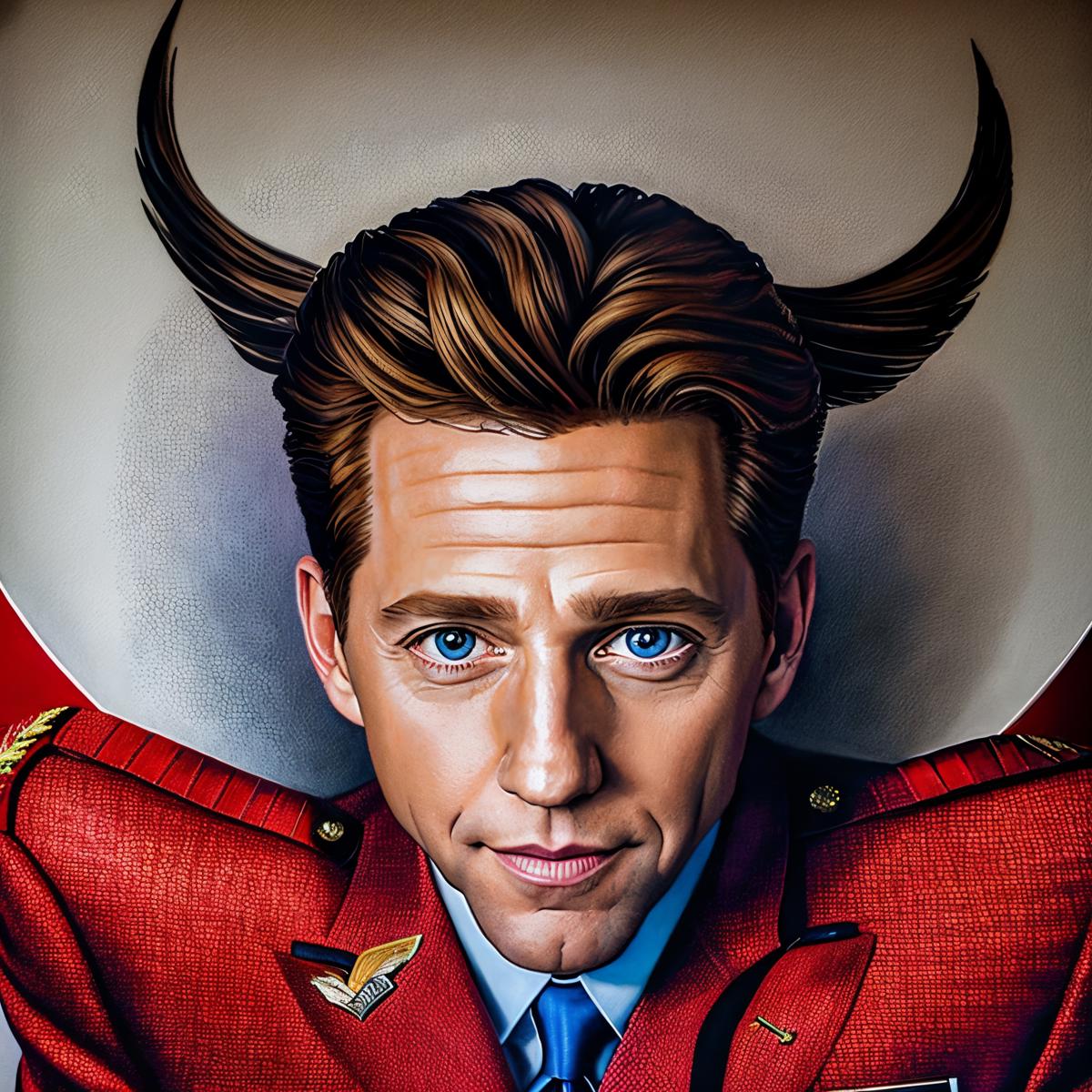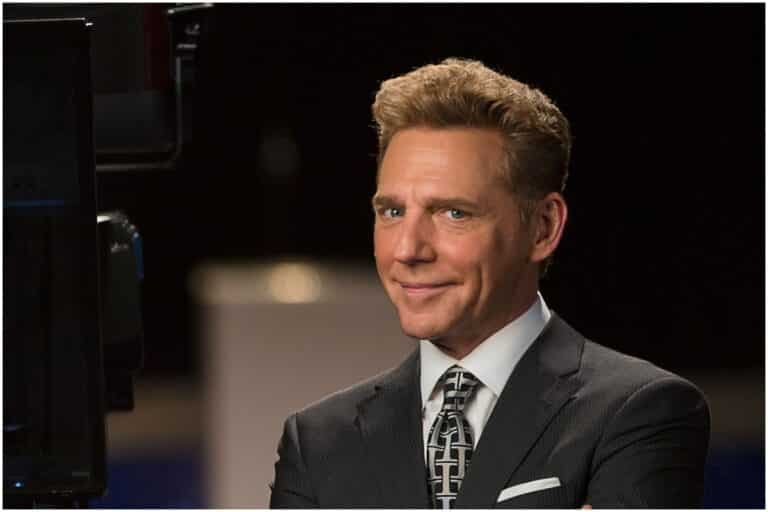When you hear the name David Miscavige, it's hard not to think about the Church of Scientology. This is a guy who's been at the center of one of the most controversial and talked-about religious organizations in modern history. As the leader of Scientology, Miscavige has shaped its direction, policies, and public perception for decades. Whether you're a fan or a critic, there's no denying that this man has left an indelible mark on the world stage.
David Miscavige's journey from a young Scientologist to becoming the head of the Church is nothing short of fascinating. His life is filled with twists, turns, and controversies that have kept people talking for years. But who exactly is David Miscavige? What drives him, and how has he managed to maintain such a tight grip on one of the most influential religious movements in the world?
This article dives deep into the life of David Miscavige, exploring his early years, rise to power, leadership style, and the controversies surrounding him. Whether you're a casual observer or someone who's deeply interested in the inner workings of Scientology, this piece will give you a comprehensive look at one of the most polarizing figures of our time. Let's get started!
Read also:Venus And Serena Williams Siblings And The Legacy Of Tennis Royalty
Table of Contents
- Early Life and Background
- Rise to Power
- Leadership Style
- Controversies Surrounding David Miscavige
- Biographical Data
- Influence on Scientology
- Public Perception
- Legal Battles
- Future Direction of Scientology
- Conclusion
Early Life and Background
David Miscavige was born on February 1, 1960, in Pontiac, Michigan. Growing up in a middle-class family, Miscavige's introduction to Scientology came at a young age when his parents became involved with the Church. By the time he was a teenager, he was already deeply immersed in the organization, attending events and participating in various activities.
His early years were marked by a strong passion for the teachings of L. Ron Hubbard, the founder of Scientology. This passion eventually led him to drop out of high school to focus entirely on his involvement with the Church. It was during this time that he began to rise through the ranks, earning a reputation for being fiercely loyal and dedicated to the cause.
Let's break down some key points about his early life:
- Born in 1960 in Pontiac, Michigan.
- Parents were early members of the Church of Scientology.
- Left high school to fully dedicate himself to Scientology.
- Began climbing the ranks in his teenage years.
Rise to Power
By the 1980s, David Miscavige had established himself as a key figure within the Church of Scientology. His rise to power was swift and decisive, marked by a series of strategic moves that solidified his position as the leader of the organization. When L. Ron Hubbard passed away in 1986, Miscavige quickly stepped into the role of Chairman of the Board of the Religious Technology Center (RTC), effectively becoming the de facto leader of Scientology.
His leadership style was characterized by a strong focus on maintaining the purity of Hubbard's teachings and ensuring that the Church's message remained consistent across the globe. Under his leadership, Scientology expanded its reach, opening new centers and gaining a significant following worldwide.
Here’s how he managed to climb the ranks:
Read also:Jerome Flynn The Talented Actor And His Remarkable Journey
- Showed unwavering loyalty to L. Ron Hubbard's teachings.
- Played a pivotal role in restructuring the Church after Hubbard's death.
- Implemented policies that strengthened the organization's global presence.
Leadership Style
Miscavige's leadership style is often described as authoritarian and uncompromising. He demands absolute loyalty from his followers and has been known to implement strict disciplinary measures for those who deviate from the Church's teachings. This approach has earned him both admiration and criticism from various quarters.
One of the hallmarks of his leadership is his emphasis on maintaining the integrity of Scientology's doctrines. He has worked tirelessly to ensure that the Church's message remains consistent and that its practices are carried out according to Hubbard's original vision. This commitment to tradition has resonated with many members of the Church, who see him as a guardian of their faith.
However, his leadership style has also been the subject of intense scrutiny. Critics argue that his methods are too rigid and that they stifle dissent within the organization. Despite these criticisms, Miscavige continues to lead Scientology with a firm hand, shaping its direction and influencing its future.
Controversies Surrounding David Miscavige
No discussion about David Miscavige would be complete without addressing the controversies that have surrounded him throughout his tenure as the leader of Scientology. From allegations of human rights abuses to legal battles and public backlash, Miscavige has faced a barrage of challenges over the years.
One of the most significant controversies involves accusations of physical and emotional abuse within the Church. Former members have come forward with stories of harsh treatment, long working hours, and a lack of basic freedoms. These allegations have sparked widespread debate about the inner workings of Scientology and the treatment of its members.
Additionally, Miscavige has been embroiled in numerous legal battles, both as an individual and as the head of the Church. These cases have ranged from lawsuits filed by former members to disputes over property and intellectual rights. Despite these challenges, Miscavige has maintained his position as the leader of Scientology, continuing to steer the organization through turbulent times.
Some key controversies include:
- Accusations of abuse and mistreatment within the Church.
- Legal battles involving former members and external organizations.
- Public criticism from celebrities and high-profile individuals.
Biographical Data
For those who want a quick overview of David Miscavige's life, here’s a table summarizing some key details:
| Full Name | David Miscavige |
|---|---|
| Date of Birth | February 1, 1960 |
| Place of Birth | Pontiac, Michigan |
| Parents | Early members of the Church of Scientology |
| Education | Dropped out of high school to focus on Scientology |
| Role in Scientology | Chairman of the Board of the Religious Technology Center |
Influence on Scientology
David Miscavige's influence on Scientology cannot be overstated. Since taking the helm of the organization, he has implemented a wide range of policies and initiatives aimed at expanding its reach and solidifying its position as a major religious movement. Under his leadership, Scientology has grown significantly, establishing new centers and attracting a diverse global following.
Miscavige has also played a key role in shaping the public perception of Scientology. Through carefully orchestrated media campaigns and high-profile events, he has worked to present the Church as a legitimate and respected religious organization. This effort has been met with varying degrees of success, depending on the audience and the context.
Some of his most notable contributions to Scientology include:
- Expanding the Church's global presence.
- Implementing policies to maintain doctrinal purity.
- Enhancing the organization's public image through media campaigns.
Public Perception
Public perception of David Miscavige is deeply divided. On one hand, he is seen as a visionary leader who has successfully guided Scientology through challenging times. His commitment to preserving the teachings of L. Ron Hubbard and expanding the Church's influence has earned him the respect of many members.
On the other hand, critics view him as a controversial figure whose leadership style has been marked by authoritarianism and controversy. The allegations of abuse and mistreatment within the Church have further fueled negative perceptions, leading to increased scrutiny from the media and the public.
This divide in public opinion reflects the broader debate about Scientology itself. While some see it as a legitimate religious organization, others view it with skepticism and suspicion. Regardless of where you stand on the issue, it's clear that David Miscavige has played a pivotal role in shaping the Church's identity and trajectory.
Legal Battles
Throughout his tenure as the leader of Scientology, David Miscavige has been involved in numerous legal battles. These cases have ranged from disputes over intellectual property rights to lawsuits filed by former members alleging mistreatment and abuse. While some of these cases have been resolved in favor of the Church, others have resulted in significant challenges and setbacks.
One of the most high-profile legal battles involved a former member who accused the Church of violating their civil rights. The case drew widespread attention and shed light on the internal workings of the organization. Despite these challenges, Miscavige has continued to lead Scientology with determination, navigating the complex legal landscape with a combination of strategic maneuvers and unwavering resolve.
Here are some examples of legal battles:
- Intellectual property disputes with external organizations.
- Lawsuits filed by former members alleging mistreatment.
- Challenges related to the Church's tax-exempt status.
Future Direction of Scientology
Looking ahead, the future direction of Scientology under David Miscavige's leadership remains uncertain. While the Church continues to expand its global presence and attract new followers, it also faces ongoing challenges related to public perception, legal issues, and internal dynamics. How Miscavige chooses to navigate these challenges will play a crucial role in determining the long-term viability of the organization.
Some potential areas of focus for the Church in the coming years include:
- Enhancing its public image through targeted media campaigns.
- Addressing concerns about internal practices and member treatment.
- Continuing to expand its global reach and influence.
Conclusion
David Miscavige's biography is a fascinating and complex story that reflects the broader narrative of Scientology itself. From his early days as a devoted follower to his rise to power as the leader of one of the most controversial religious organizations in the world, Miscavige has left an indelible mark on the global stage. Whether you view him as a visionary leader or a polarizing figure, there's no denying his impact on the Church and its members.
As Scientology continues to evolve under his leadership, the challenges and opportunities ahead will shape its future in profound ways. For those interested in learning more about this enigmatic figure and the organization he leads, this article provides a comprehensive overview of his life, achievements, and controversies.
So, what do you think? Is David Miscavige a misunderstood leader or a controversial figure? Share your thoughts in the comments below and don't forget to check out our other articles for more insights into the world of Scientology!


